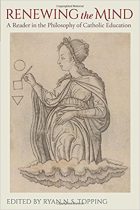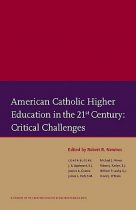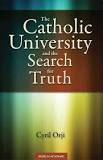Arthur, J. (2006). Faith and secularisation in religious colleges and universities. New York: Routledge.
 Arthur examines the trend for religious colleges and universities to become more “mainstream” in response to modernity and, for Catholic institutions, especially in response to Vatican II. Much of the Catholic response is covered in other readings , but Arthur’s work is informative in placing it in broader comparative context. Continue reading “Faith and Secularisation”
Arthur examines the trend for religious colleges and universities to become more “mainstream” in response to modernity and, for Catholic institutions, especially in response to Vatican II. Much of the Catholic response is covered in other readings , but Arthur’s work is informative in placing it in broader comparative context. Continue reading “Faith and Secularisation”
 Reuben’s work examines development of the American university during the late 19th and early 20th centuries, especially the roles of religion and morality. Her socio-historical analysis is dominated by the prevailing American Protestantism, and its focus is primarily larger research universities However, many of the trends that Reuben identifies affected the development of Catholic universities.
Reuben’s work examines development of the American university during the late 19th and early 20th centuries, especially the roles of religion and morality. Her socio-historical analysis is dominated by the prevailing American Protestantism, and its focus is primarily larger research universities However, many of the trends that Reuben identifies affected the development of Catholic universities.  This book discusses Catholic education in the light of documents from the Church’s Congregation for Catholic Education (CCE) and the writings of Jacques Maritain and Bernard Lonergan. It is rather heavy reading, but very insightful and relevant, especially for Praxis participants.
This book discusses Catholic education in the light of documents from the Church’s Congregation for Catholic Education (CCE) and the writings of Jacques Maritain and Bernard Lonergan. It is rather heavy reading, but very insightful and relevant, especially for Praxis participants.  This is a compendium of writings on education ranging from the classical (including Plato, Aristotle, Augustine and Aquinas) to the recent, primarily (although not exclusively) from a Catholic perspective. The nearly 40 entries can be read as a continuum or as selections. Topping provides a brief introduction, further reading and study questions for each selection, which make this very useful as a teaching text.
This is a compendium of writings on education ranging from the classical (including Plato, Aristotle, Augustine and Aquinas) to the recent, primarily (although not exclusively) from a Catholic perspective. The nearly 40 entries can be read as a continuum or as selections. Topping provides a brief introduction, further reading and study questions for each selection, which make this very useful as a teaching text.  This edited volume contains papers from a 2013 symposium that discussed four critical issues in Catholic higher education: strengthening the Catholic intellectual tradition; personal and religious formation of students; the relationship of Catholic colleges to the Church; and preparing future leaders of Catholic post-secondary institutions.
This edited volume contains papers from a 2013 symposium that discussed four critical issues in Catholic higher education: strengthening the Catholic intellectual tradition; personal and religious formation of students; the relationship of Catholic colleges to the Church; and preparing future leaders of Catholic post-secondary institutions.  Orji asks “is there a “Catholic Intellectual Tradition” (CIT)?”, and if so, what is it? He notes people (including Catholic “intellectuals”) are confused about it. Is CIT independent of the “magisterium” (revealed truth) and the official philosophy of the Church or can it include other philosophies? Is it “too Catholic” or “not Catholic enough”?
Orji asks “is there a “Catholic Intellectual Tradition” (CIT)?”, and if so, what is it? He notes people (including Catholic “intellectuals”) are confused about it. Is CIT independent of the “magisterium” (revealed truth) and the official philosophy of the Church or can it include other philosophies? Is it “too Catholic” or “not Catholic enough”? 
 The first chapter gives a history of “American Philosophy in the 20th Century” (its “narrowing of scope” and separation of faith and reason), which is interesting, but the second chapter “Teaching Philosophy in a Catholic University according to John Paul II” is the most relevant. It is an interesting complement to the majority of authors who see theology as the central and unifying science.
The first chapter gives a history of “American Philosophy in the 20th Century” (its “narrowing of scope” and separation of faith and reason), which is interesting, but the second chapter “Teaching Philosophy in a Catholic University according to John Paul II” is the most relevant. It is an interesting complement to the majority of authors who see theology as the central and unifying science.  The opening to the preface — “this study is addressed to those who are educated enough to wonder if they are really educated” — seems directed to those of us struggling to familiarize ourselves with the Catholic intellectual tradition It is largely a positive book, seeing much good in the faculty already in place.
The opening to the preface — “this study is addressed to those who are educated enough to wonder if they are really educated” — seems directed to those of us struggling to familiarize ourselves with the Catholic intellectual tradition It is largely a positive book, seeing much good in the faculty already in place. 